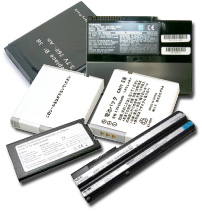 |
 |
RARE METALS ARE CONCEALED IN THE "URBAN MINE" |
|
The demand for rechargeable batteries continues to increase as the world market for mobile devices expands. Meanwhile hybrid and electric vehicles lead the way for the future of the automobile industry. The key element contributing to the advancement of battery technology is its chemistry, which depends on metals such as nickel, cobalt and cadmium-creating a longer lasting, more powerful battery. However, there are limited supplies of these semi-precious metals. Unfortunately many of these rechargeable batteries end up in the dump, still containing valuable metals. |
 |
From one ton of ore, only 10-20 kgs of nickel can be extracted whereas from one ton of rechargeable batteries 200-350 kgs of nickel can be extracted. These end-of-life batteries still have tremendous value in them and are literally an gUrban Mineh. A similar scenario applies to copper, cobalt, lithium and aluminum. At NRCC we believe we have a responsibility to preserve the planet's resources for future generations.
|
|

OUR GOAL IS TO HELP CREATE AN ENVIRONMENTALLY CONSCIENTIOUS SOCIETY
In 2001 the Japanese government passed what is known as the Law for the Promotion of Effective Utilization of Resources. This legislation aims to create a society that actively pursues the three R's-Reduce, Reuse and Recycle. This law requires all battery manufacturers and manufacturers of battery operated electronics to recover all used rechargeable batteries. NRCC has had a close relationship with JBRC (Japan Portable Rechargeable Battery Recycling Center) since its inception in 2004 by JBRC as Japan's battery collection entity. At NRCC we play an active role in preserving the earth's resources by making it our business to actively recycle and extract metals such as nickel, cobalt, aluminum, copper and cadmium.
|
|
